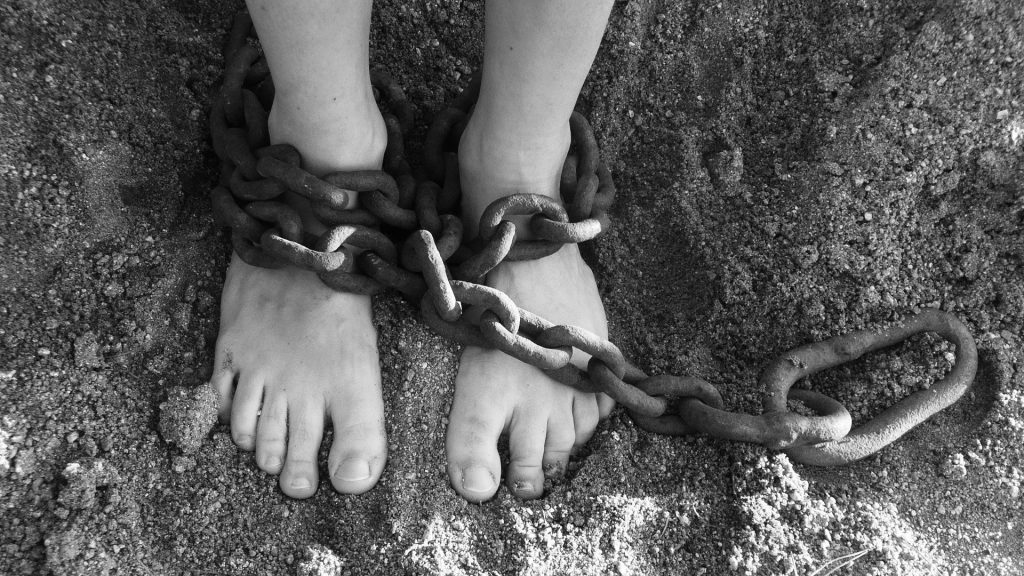What is modern slavery?
Modern slavery is a serious violation of an individual’s dignity and human rights. Exploitative practices including human trafficking, slavery, servitude, forced labour, debt bondage and forced marriage are all considered modern slavery and are serious crimes under Australian law.
What is the NSW Government doing about modern slavery?
NSW was the first jurisdiction in Australia to legislate against modern slavery and the second jurisdiction in the world to provide for an Anti-Slavery Commissioner.
The Modern Slavery Act 2018 (NSW) (‘the Act’) recognises modern slavery is prevalent both and outlines steps to ensure NSW is not contributing to the commission of these crimes.
The Act includes a number of Amendments to a range of offences contained in the Crimes Act 1900 (NSW), to introduce further and more specific Slavery and slavery-like offences, as well as amending and strengthening the current provisions surrounding Child abuse material.
The Act seeks to tackle modern slavery occurring in NSW and in the supply chains of NSW organisations – whether that conduct occurs within the state, Australia as a whole or internationally.
Some of the Act’s directions include:
- Establishing an Anti-Slavery Commissioner to combat and raise awareness of modern slavery in NSW
- Developing a responsive approach to support victims
- Creating and implementing guidelines for businesses and NSW Government agencies to acknowledge and address modern slavery risks.
What will businesses need to do?
All organisations share the collective responsibility to guarantee their goods and services are not products of modern slavery.
The Modern Slavery Act 2018 asks organisations to identify the risk of modern slavery occurring in their operations and supply chains and set out the steps they are taking to address the risk.
Commencement of the Modern Slavery Act
The Act was passed by the Parliament on 21 June 2018, with the Premier of NSW, recognising that “There is an undeniable moral imperative to take action in relation to all forms of modern slavery.” Despite the Act receiving Royal Assent on 27 June 2018, the Act has not yet commenced meaning its directions are not yet in force.
On commencement, the Act and corresponding regulations will require commercial organisations with employees in NSW and an annual turnover between $50 million and $100 million to submit a statement to the Anti-Slavery Commissioner. The statement must contain information as to the steps taken by the commercial organisation during the financial year to ensure that its goods and services are not a product of supply chains in which modern slavery is taking place.
A petition has since been started, calling on the NSW Government to take immediate steps to proclaim the state’s Modern Slavery Act 2018.
Key Takeaways
- Modern slavery encompasses human trafficking, forced labor, debt bondage, and forced marriage, constituting serious crimes in Australia.
- NSW leads in legislation against modern slavery, establishing an Anti-Slavery Commissioner and targeting slavery within state and organizational supply chains.
- The Modern Slavery Act 2018 (NSW) mandates businesses to identify and address modern slavery risks in their operations and supply chains.
- Although passed, the NSW Act awaits commencement; upon activation, organizations must submit annual statements detailing their anti-slavery measures.
- The Commonwealth Modern Slavery Act 2018 imposes similar requirements at a national level, targeting entities with significant annual revenues.
Commonwealth Modern Slavery Act 2018
Similar to the NSW Modern Slavery Act, the Commonwealth Modern Slavery Act 2018 seeks to establish a national Modern Slavery Reporting Requirement. This Reporting Requirement applies to large businesses and other entities in the Australian market with annual consolidated revenue of at least AUD$100 million, requiring entities to prepare annual Modern Slavery Statements. These statements must set out the reporting entity’s actions to assess and address modern slavery risks in both their global operations and supply chains.
The Act also requires the Australian Government to publish an annual Modern Slavery Statement covering Commonwealth procurement and investment activities. The first Australian Government Modern Slavery Statement will cover the 2019-20 Australian financial year and is due to be published before 31 December 2020.
If you or someone you know needs legal advice or representation for a criminal law matter, contact the team at Hamilton Janke Lawyers 24/7 by calling 4038 1666.
Written By

James Janke
James Janke is founding partner at Hamilton Janke Lawyers, and has more then decade of experience as a Criminal Defence Lawyer. Admitted to both the Supreme Court of New South Wales and High Court of Australia




